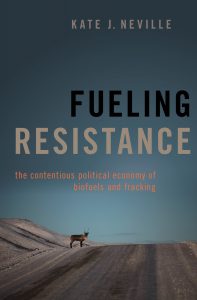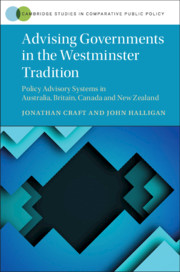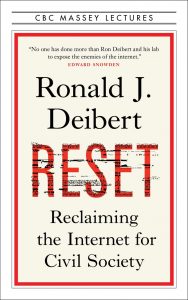
Innovation in Real Places – Strategies for Prosperity in an Unforgiving World
Across the world, cities and regions have wasted trillions of dollars blindly copying the Silicon Valley model of growth creation. We have lived with this system for decades, and the result is clear: a small number of regions and cities are at the top of the high-tech industry, but many more are fighting a losing battle to retain economic dynamism. But, as this books details, there are other models for innovation-based growth that don’t rely on a flourishing high-tech industry. Breznitz argues that the purveyors of the dominant ideas on innovation have a feeble understanding of the big picture on global production and innovation. They conflate innovation with invention and suffer from techno-fetishism. In their devotion to start-ups, they refuse to admit that the real obstacle to growth for most cities is the overwhelming power of the real hubs, which siphon up vast amounts of talent and money. Communities waste time, money, and energy pursuing this road to nowhere. Instead, Breznitz proposes that communities focus on where they fit within the four stages in the global production process. Success lies in understanding the changed structure of the global system of production and then using those insights to enable communities to recognize their own advantages, which in turn allows to them to foster surprising forms of specialized innovation. All localities have certain advantages relative to at least one stage of the global production process, and the trick is in recognizing it.

The Political Economy of the Abe Government and Abenomics Reforms
This volume seeks to explain the political economy of the Abe government and the so-called ‘Abenomics’ economic policies. The Abe government represents a major turning point in postwar Japanese political economy. In 2019, Abe became the longest serving Prime Minister in Japanese history. Abe’s government stood out not only for its longevity, but also for its policies. Abe came to power promising to reinvigorate Japan’s economy under the banner of Abenomics. He pursed a host of structural reforms and industrial promotions to increase Japan’s potential growth rate. Abe also achieved important legislative victories in security policy. However, the government also faced significant controversies. The book will hold appeal to scholars and students specializing in the study of Japanese politics, comparative political economy, the politics of contemporary advanced democracies, macroeconomic policy, labor market reforms, corporate governance, gender equality, agricultural reforms, energy and climate change, and East Asian security.

Fueling Resistance: The Contentious Political Economy of Biofuels and Fracking
A series of concurrent pressures in the early 2000s–climate change, financial system crashes, economic development in rural regions, and shifts in geopolitics–intensified interest in alternative energy production. At the same time, rising oil prices rendered alternative fuels a more economically viable option. Among these energy sources, liquid biofuels (bioethanol and biodiesel) and natural gas derived from hydraulic fracturing (“fracking”) took center stage as promising commodities and technologies. But controversy quickly erupted in surprisingly similar ways around both renewable fuels. Global enthusiasm for these fuels–and the widespread projections for their production around the world–collided with local politics in debates over “food versus fuel” and concerns over “land grabs.” What seemed, from a global perspective, like empty lands ripe for development were, to rural communities, vibrant and already contested spaces. As proposals for biofuels and fracking landed in specific communities and ecosystems, they reignited and reshaped old disputes over land, water, and decision-making authority.
Fueling Resistance offers an account of how and why controversies over these different fuels unfolded in surprisingly similar ways in the global North and South. To explain these convergent dynamics of contention and resistance, Kate J. Neville argues that the emergence of grievances and the patterns of resistance to new fuel technologies depends less on the type of energy developed (renewable versus fossil fuel) than on intersecting elements of the political economy of energy: finance, ownership, and trade relations. As local commodities enter global supply chains and are integrated into existing corporate structures, opportunities arise to broker connections between otherwise disparate communities.
Neville looks at biofuels in Kenya and fracking in the Canadian Yukon and shows how organizers connect specific energy projects to broader issues of globalization, climate, food, water, and justice. Taken together, the intersecting elements of the political economy of energy shape the contentious politics of biofuels and fracking at both local and global scales, and help explain how and why particular mechanisms of contention emerge at different times and places.

Canadian Federalism: Performance, Effectiveness, and Legitimacy (Fourth Edition)
Canadian Federalism is Canada’s leading text on federal institutions and processes. The fourth edition provides extensive updates and covers all the significant developments of the past decade, including Prime Minister Stephen Harper’s battles with the Supreme Court and Prime Minister Justin Trudeau’s efforts at a more co-operative approach to intergovernmental relations. It also features two entirely new chapters – one on criminal justice and criminal law, the other on comparative federalism. Specific topics include the Supreme Court’s renewed emphasis on co-operative federalism and a federal–provincial balance tilted more in favour of the provinces, the Trudeau government’s efforts to broker a deal between provinces over pipelines and carbon taxes as part of its commitment under the Paris Agreement, the strains imposed on federal–provincial relations with the influx of refugees, and the changing role of Ottawa and the provinces towards cities and in accommodating Indigenous rights. Examination of these key issues includes discussion of the implications of the 2019 federal election and recent provincial elections.

Joseph Carens: Between Aliens and Citizens
This book offers a critical discussion of Joseph Carens’s main works in migration ethics covering themes such as migration, naturalization, citizenship, culture, religion and economic equality. The volume is published on the occasion of the annual Münster Lectures in Philosophy held by Joseph Carens in the fall of 2018. It documents the intellectual exchange with the well-known philosopher Joseph Carens by offering critical contributions on Carens’s work and commentaries of Carens as a reply to these critical contributions. With his various works on migration ethics, Joseph Carens must be seen as one of the leading academics in the political and ethical discourse of migration in the last years. The topic of migration raises questions not only regarding naturalization and citizenship but also cultural, economic and religious differences between aliens, citizens and persons whose status lies in between and calls for further determination. Such questions gain more and more importance in our globalized world as can be seen for example in the context of the refugee crisis in the European Union and the U.S.
The book covers different systematic topics of Carens’s work as can be found in his widely read book “The Ethics of Immigration” but also in further publications. It provides papers with critical discussions of Carens’s work as well as his responses to these, thus enabling and documenting the fruitful dialogue between the contributors and Carens himself. The aim of this book is to sharpen and shed light on Carens’s arguments concerning migration by offering new and critical perspectives and fine-grained analyses.

Advising Governments in the Westminster Tradition: Policy Advisory Systems in Australia, Britain, Canada and New Zealand
In turbulent environments and unstable political contexts, policy advisory systems have become more volatile. The policy advisory system in Anglophone countries is composed of different types of advisers who have input into government decision making. Government choices about who advises them varies widely as they demand contestability, greater partisan input and more external consultation. The professional advice of the public service may be disregarded. The consequences for public policy are immense depending on whether a plurality of advice works effectively or is derailed by narrow and partisan agendas that lack an evidence base and implementation plans. The book seeks to addresses these issues within a comparative country analysis of how policy advisory systems are constituted and how they operate in the age of instability in governance and major challenges with how the complexity policy issue can be handled.

Reset: Reclaiming the Internet for Civil Society
In the 2020 CBC Massey Lectures, bestselling author and renowned technology and security expert Ronald J. Deibert exposes the disturbing influence and impact of the internet on politics, the economy, the environment, and humanity.
Digital technologies have given rise to a new machine-based civilization that is increasingly linked to a growing number of social and political maladies. Accountability is weak and insecurity is endemic, creating disturbing opportunities for exploitation.?
Drawing from the cutting-edge research of the Citizen Lab, the world-renowned digital security research group which he founded and directs, Ronald J. Deibert exposes the impacts of this communications ecosystem on civil society. He tracks a mostly unregulated surveillance industry, innovations in technologies of remote control, superpower policing practices, dark PR firms, and highly profitable hack-for-hire services feeding off rivers of poorly secured personal data. Deibert also unearths how dependence on social media and its expanding universe of consumer electronics creates immense pressure on the natural environment.?In order to combat authoritarian practices, environmental degradation, and rampant electronic consumerism, he urges restraints on tech platforms and governments to reclaim the internet for civil society.

City, State: Constitutionalism and the Megacity
More than half of the world’s population lives in cities; by 2050, it will be more than three quarters. Projections suggest that megacities of 50 million or even 100 million inhabitants will emerge by the end of the century, mostly in the Global South. This shift marks a major and unprecedented transformation of the organization of society, both spatially and geopolitically. Our constitutional institutions and imagination, however, have failed to keep pace with this new reality. Cities have remained virtually absent from constitutional law and constitutional thought, not to mention from comparative constitutional studies more generally. As the world is urbanizing at an extraordinary rate, this book argues, new thinking about constitutionalism and urbanization is desperately needed. In six chapters, the book considers the reasons for the “constitutional blind spot” concerning the metropolis, probes the constitutional relationship between states and (mega)cities worldwide, examines patterns of constitutional change and stalemate in city status, and aims to carve a new place for the city in constitutional thought, constitutional law and constitutional practice.

Partisan Odysseys: Canada’s Political Parties
In Partisan Odysseys, Nelson Wiseman sets out to survey the history of Canada’s political parties. Uncovering distinctive motifs and events in Canadian party politics from pre-Confederation to the present, Wiseman shows how parties have adjusted, adapted, and reinvented themselves in response to significant social and economic changes as well as how parties have, in turn, shaped or reinforced these social forces.
The book begins by tracing the rise of four different types of parties in the nineteenth century. By the end of the century, the Conservative and Liberal parties that continue to this day were firmly established. Among the topics covered throughout are nationalism, minority governments, third parties, and the reconfiguration of party positions. Wiseman concludes by examining changes in the way Canada’s ever-evolving parties have operated and the rise of the modern party as a nimble, enterprising institution compared to its historical antecedent.
Substantial yet accessible, Partisan Odysseys will enlighten students, scholars, and general readers alike.

Private Governance and Public Authority: Regulating Sustainability in a Global Economy
At a time of significant concern about the sustainability of the global economy, businesses are eager to display responsible corporate practices. While rulemaking for these practices was once the prerogative of states, businesses and civil society actors are increasingly engaged in creating private rulemaking instruments, such as eco-labeling and certification schemes, to govern corporate behavior. When does a public authority intervene in such private governance and reassert the primacy of public policy? Renckens develops a new theory of public-private regulatory interactions and argues that when and how a public authority intervenes in private governance depends on the economic benefits to domestic producers that such intervention generates and the degree of fragmentation of private governance schemes. Drawing on European Union policymaking on organic agriculture, biofuels, fisheries, and fair trade, he exposes the political-economic conflicts between private and public rule makers and the strategic nature of regulating sustainability in a global economy.